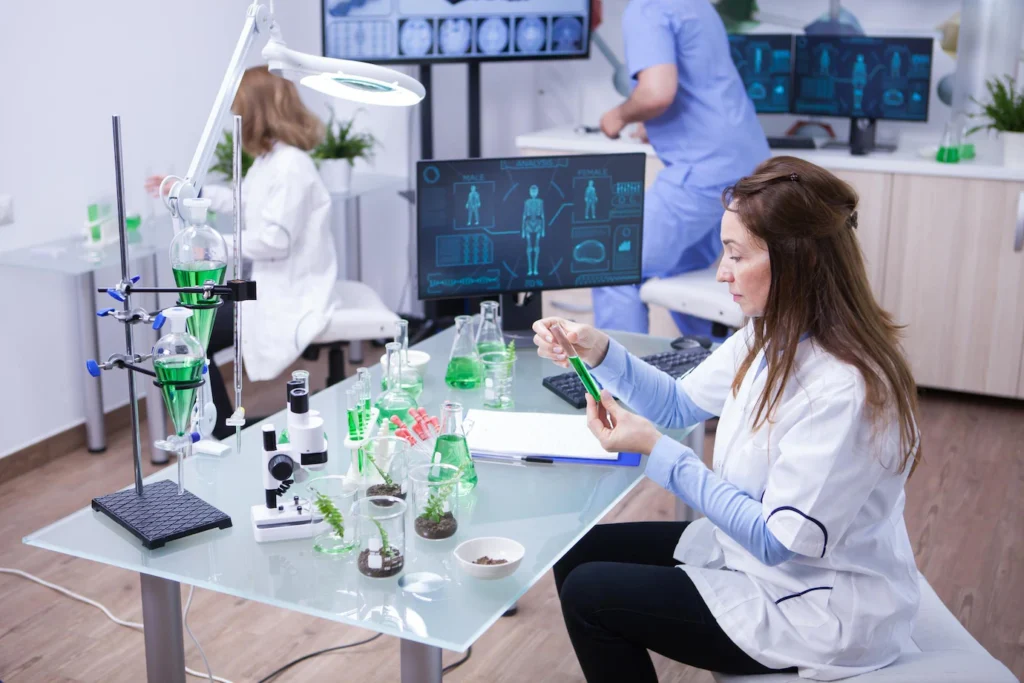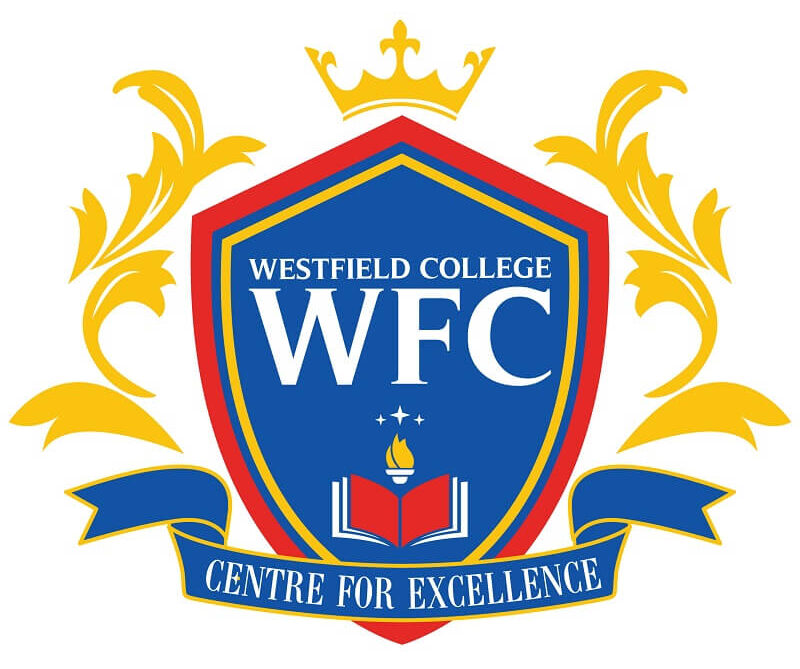Communication in Health and Social Care. Great Course. Very Easy to Understand
BSc (Hons) Medicinal and Biological Chemistry

BSc (Hons) Medicinal and Biological Chemistry
Overview:
Medicinal and biological chemistry is the foundation of modern medicine. The life sciences industry is one of the largest industrial sectors in the UK, where you could use your skills to have a positive effect on health and wellbeing worldwide.
This is a truly multidisciplinary science. While chemistry forms the core of this Medicinal and Biological Chemistry degree, you’ll also study biology, physiology, biochemistry and pharmacology to understand the links between human disease and its prevention and treatment through drug design.
To prepare you for the workplace there’s a significant amount of simulated work-based learning as part of this course, as well as employability and professional development activities. In your final year, for example, you can complete a major project in the workplace or pursue an industry-linked project.
Typical A-Level Offer
BCC including Chemistry and Biology but to exclude General Studies
Typical Welsh BACC Offer
Pass the Advanced Welsh Baccalaureate Diploma with Grade C in the Skills Challenge Certificate and BC at A Level (this is equivalent to 104 UCAS tariff points). Must include Biology and Chemistry modules and excludes General Studies
Typical Science Requirements
Applicants taking Science A levels in England will need to pass the practical element alongside achieving the requested grade(s)
Typical BTEC Offer
BTEC Extended Diploma Distinction Merit Merit in a relevant subject which must include Biology and Chemistry modules
Typical Access to HE Offer
Pass an Access to HE Diploma in Science and obtain a minimum of 104 UCAS tariff points
Additional Requirements
GCSEs: The University normally requires a minimum 5 GCSEs including Mathematics/Numeracy and English at Grade C or Grade 4 or above, or their equivalent, but consideration is given to individual circumstances.
Online application form
Information requested on this form should be completed in as much detail in order to process your application successfully. All fields marked * must be completed.
Apply Now
Entry Requirements
Contextual offers
We may make you a lower offer based on a range of factors, including your background (where you live and the school or college that you attended for example), your experiences and individual circumstances (as a care leaver, for example). This is referred to as a contextual offer and we receive data from UCAS to support us in making these decisions. USW prides itself on its student experience and we support our students to achieve their goals and become a successful graduate. This approach helps us to support students who have the potential to succeed and who may have faced barriers that make it more difficult to access university. Here is a link to our Contextual Admissions Policy.
Other qualifications and experience
We can also consider combinations of qualifications and other qualifications not listed here may also be acceptable. We can sometimes consider credits achieved at other universities and your work/life experience through an assessment of prior learning. This may be for year one entry, or advanced entry to year two or three of a course where this is possible.
To find out which qualifications have tariff points, please refer to the UCAS tariff calculator.
If you need more help or information or would like to speak to our friendly admissions team, please contact us here
WHAT YOU WILL STUDY
The first year provides an excellent grounding in all three branches of chemistry – inorganic, organic and physical – as well as fundamental biology topics. In your second and final years, you’ll progress to study topics at the interface of chemistry and biology, such as drug design, toxicology, biochemistry and heterocyclic chemistry.
Year One: Medicinal and Biological Chemistry Degree
- Genetics and Evolution (20 credits)
- Human Anatomy and Physiology (20 credits)
- Molecules, Membranes and Cells (20 credits)
- Organic Chemistry (20 credits)
- Physical Chemistry (20 credits)
- Your Skills, Your Future (20 credits)
Year Two: Medicinal and Biological Chemistry Degree
- Human Molecular Genetics (20 credits)
- Frontiers in Biology (20 credits)
- Cellular Pathology and Disease Processes (20 credits)
- Analytical Chemistry (20 credits)
- Synthetic Organic Chemistry (20 credits)
- Heterocyclic Chemistry and an Introduction to Drug Design (20 credits)
Year Three: Medicinal and Biological Chemistry Degree
- Clinical Biochemistry and Pharmacology (20 credits)
- Toxicology (20 credits)
- Professional Practice, Employability and Major Project (40 credits)
- Topics in Medicinal Chemistry (20 credits)
- Advanced Organic Chemistry (20 credits)
Teaching
A blended learning and teaching approach is utilised to provide the students with subject specific and key skills. Typically, modules consist of a mix of lectures, tutorials, workshops and practical laboratory sessions.
Students are provided with numerous learning activities including written coursework, project work, group work, practicals (with group sizes tailored to the activity); problem solving sessions, self study assignments, oral and poster presentations. independent study, work related learning, on-line self assessments etc. Student will receive around 15 contact hours per week and will be expected to conduct at least one hour of individual study for every one hour of contact.
Teaching staff draw on research interests and scholarly activity, including conferences, to enhance lectures, laboratory work and develop final year projects. In general, final year projects are often of an applied science nature or involve the use of a range of synthetic techniques and analytical instrumentation in line with individual teaching staff research interests.
RESEARCH INFORMED TEACHING
The majority of chemistry research at USW is concerned with the development and application of new catalytic entities, particularly within the field of renewable energy and sustainable manufacturing processes. See our current chemistry research.
Assessment
Assessment is by examinations; in class tests; online pre-laboratory assessments; laboratory/practical reports and skills; oral presentations; themed portfolios of work; attendance at specific events; essays and dissertations; computer assignments; project work (including planning, conducting, documenting and reporting); and overall monitoring of safe practice in the laboratory.
COURSE DETAILS
Placements
Students are encouraged to undertake a work placement as part of their final year project, and those wishing to do so are supported by the University’s Work Placement Team and the Careers Service.
Facilities
The Chemistry/Analytical Facilities are on a par with those found in industry. Students make full use of the laboratories during their studies and gain hands on experience using the extensive analytical equipment. Built to the latest standards of safety, our laboratories cater for moderate class sizes to ensure students receive a more personal practical experience. All the laboratories are equipped with AV teaching equipment and have Wi-Fi coverage.
The Chemistry/Analytical suite of laboratories comprise:
A dedicated Organic chemistry laboratory with a capacity of up to 24 students
A combined Inorganic/Physical chemistry laboratory
Two large general instrument laboratories that house some of the more routinely used analytical equipment
A dedicated student research laboratory, used primarily by final year students undertaking a year long research project
Two specialised laboratories for performing nuclear magnetic resonance (NMR) spectrometry and scanning electron microscopy.
The laboratories are fully equipped with chemicals and consumables, glassware and equipment as expected to run a Chemistry degree course.
Biology facilities include newly refurbished biology laboratories; newly built category II microbiology laboratories and facilities for handling of pathogenic organisms PCR and DNA analyzers and an extensive range of anatomical models for teaching of Anatomy and Physiology dedicated microscopy laboratories with access to electron microscopy.
Additional Costs
As a student of USW, you’ll have access to lots of free resources to support your study and learning, such as textbooks, publications, online journals, laptops, and plenty of remote-access resources. Whilst in most cases these resources are more than sufficient in supporting you with completing your course, additional costs, both obligatory and optional, may be required or requested for the likes of travel, memberships, experience days, stationery, printing, or equipment.
CAREERS
Graduates will be ready for a career as a scientist, researcher or technician in the life sciences, which includes the pharmaceutical and biotechnological industries. You could also explore opportunities in the chemical industries and other medical-related employment. You’ll also develop a wide range of transferable skills as part of your studies, including analytical problem solving, team work and communication. As such, graduates from chemistry-based degrees can find employment in alternative disciplines such as teaching, management, law, finance and business.
Graduates can also progress to a PhD or research degree.
Fees
Full time
- 12 to 18 months
£7,250
You’ll study 9 modules in total (approx. 37 hrs/week).
Part time option one
- 12 to 18 months
£4,250
You’ll study 6 modules per year (approx. 25 hrs/week).
Part time option two
- 12 to 18 months
£5,500
Have a question about our professional qualifications?

Contact us about our professional qualifications
If you have any questions about our professional qualifications in finance and banking, please contact our customer services team.
Call us
- +44 (0) 203 771 5653
- admissions@westfieldcollege.co.uk
What Our Students Have To Say
Hi, I recently started Access to Higher Education Diploma (Nursing and Midwifery) course with Westfield College.
--Komal Kiran Galaria
DesignerMy experience with Westfield College is great. The supervisor and the admin team are proactive and efficient.

